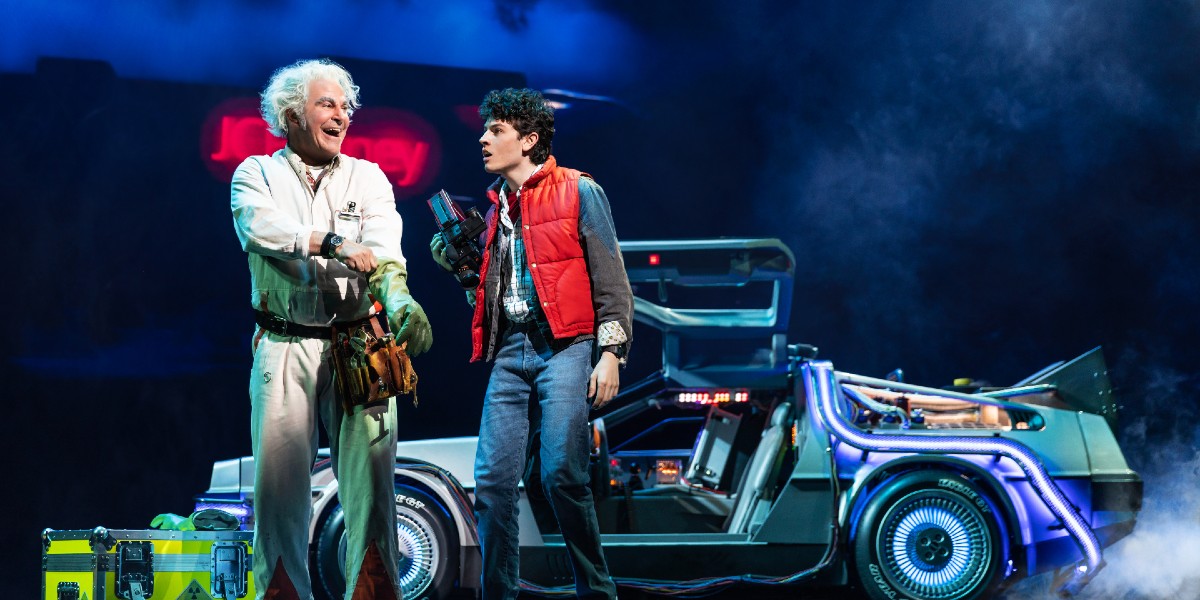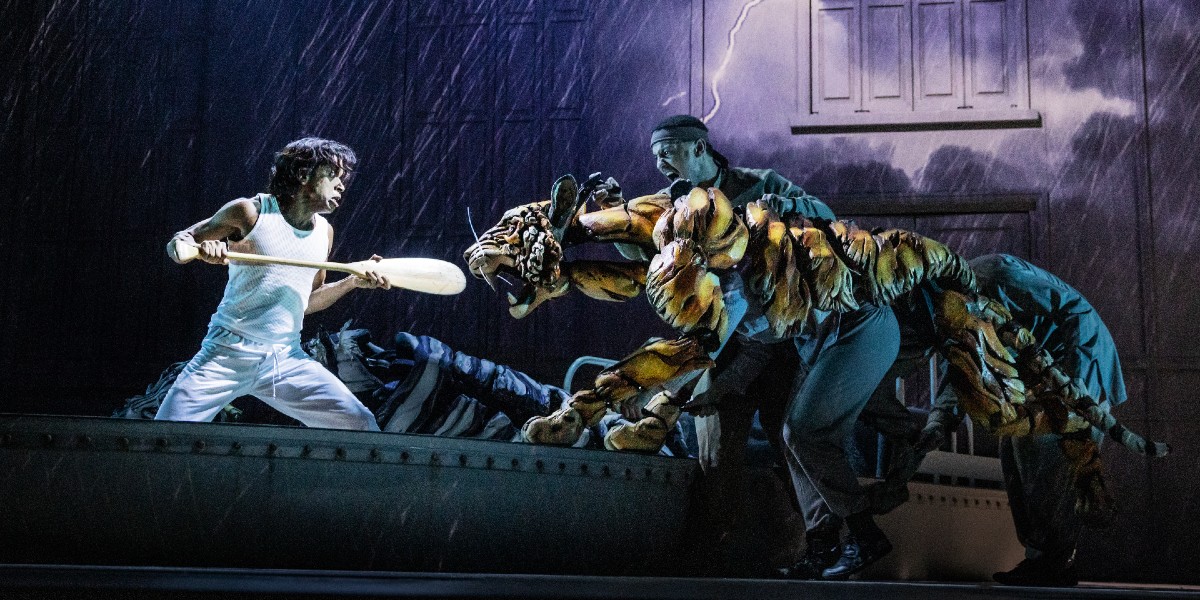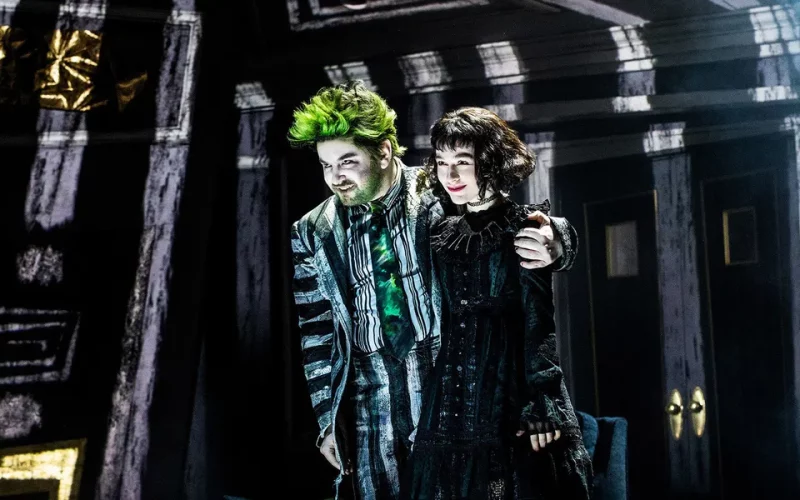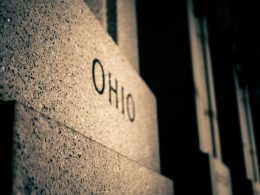The new Beetlejuice stage production takes significant liberties with Tim Burton’s original plot and characters. While this approach brings some fresh elements, it also introduces brash, cartoonish qualities that lack the film’s nuanced charm.
A More Manic Beetlejuice
In this production, Beetlejuice (played by Justin Collette) is transformed into an even more manic and desperate character. Collette’s performance, filled with vaudevillian energy, entertains but deviates from the original’s complexity. His portrayal is louder and more exaggerated, which might appeal to some but feels overly simplistic compared to the film.

New Dynamics for Familiar Characters
The characters of Delia and Charles have been altered significantly. Delia (Sarah Litzsinger) has a different relationship with Charles (Jesse Sharp) and the death-obsessed teenager Lydia (Isabella Esler). These changes depart from the original Beetlejuice film plot, leading to a less satisfying storyline for fans of the movie.
Stunning Set and Stagecraft
One-third of the production’s appeal lies in its brilliant set design by David Korins and lighting by Kenneth Posner. The audience is taken on a wild ride through various locations, from a re-outfitted farmhouse living room to the attic where ghosts Barbara and Adam hide. The visual journey through these settings is both creative and engaging.
Over-the-Top Special Effects
The Beetlejuice stage show doesn’t shy away from using excessive spooky effects. The frequent use of strobe lights and relentless sight gags often feels unnecessary. While these effects are meant to enhance the spooky atmosphere, they sometimes overwhelm rather than impress. Peter Nigrini’s cartoon-like projections serve as effective scene transitions, adding a Gothic touch to the show.
Sound and Music Challenges
The dense electronic orchestration and pounding amplification often obscure the song lyrics, especially in the more raucous musical numbers. This is a significant drawback, as the audience misses out on the witty lyrics that are a hallmark of Beetlejuice. The technical elements overshadow the music, diminishing its overall impact.
Highlights in the Music
Despite these challenges, there are moments where the music shines. The “Day-O (The Banana Boat Song)” is a riotously funny highlight, especially during the dinner party scene. This number captures the spirit of Beetlejuice and delights the audience with its playful energy.
The Risk of Overdoing It
The creators of the Beetlejuice stage production seem to have embraced a “more is better” philosophy. While this approach adds to the spectacle, it often results in an overwhelming experience. The relentless effects and jokes can feel excessive, overshadowing the creative substance that made the original film so charming.

A Visual Spectacle, but Lacking Substance
Overall, the Beetlejuice stage production offers a visual spectacle filled with energy and creativity. However, the excessive effects and deviations from the original plot make it less satisfying for those seeking the depth and charm of the film. The production’s bold choices might appeal to some, but they also risk alienating fans of the classic Beetlejuice.
Conclusion: A Mixed Bag for Beetlejuice Fans
The Beetlejuice stage adaptation is a mixed bag, delivering on visual excitement but falling short on substance. While the set design and certain musical numbers stand out, the overall experience can be overwhelming. Fans of the film might find the stage version a louder, yet less fulfilling, alternative to the beloved original.












